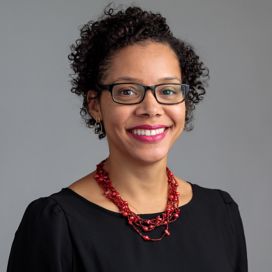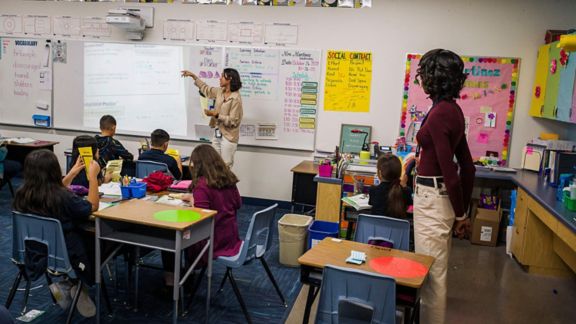Curriculum & Learning Improvement Project (CLIP)

Problem
Middle school math can be a barrier for historically marginalized students.
Disproportionate numbers of Black, Hispanic/Latino, and economically disadvantaged students are ill-prepared for college-preparatory math courses when they graduate from middle school. The ability to succeed in these high school math courses has been linked to both postsecondary success and greater lifelong opportunities. Limited access to high-quality middle school math courses hinders opportunities for Black, Hispanic/Latino, and economically disadvantaged students to meet their full potential. The Bill & Melinda Gates Foundation wants to address this gap by making middle school math instruction more effective for these historically marginalized students through a data ecosystem that integrates existing student data to allow for better decision-making.
Solution
NORC will lead the development of an integrated education data ecosystem.
The Gates Foundation selected NORC to lead a growing consortium—the Curriculum and Learning Improvement Project (CLIP)—to build an innovative data ecosystem that combines data from an existing learning management and student information system with metadata from curriculum providers. Historically, consortium members only had access to their own data. CLIP will allow them to share data and make the collection and application of information faster, easier, and more actionable for content developers and practitioners. This will enable them to better support students’ math experiences, especially historically marginalized students. NORC has decades of experience building collaborative data environments, which is vital to the project’s success.
Result
Data ecosystem users will have real-time insights on math instruction.
The data ecosystem will provide teachers, principals, school districts, state education leaders, curriculum developers, and researchers with real-time insights into how middle school math materials are being used in classrooms. It will also let users link curriculum implementation to achievement outcomes, and make more informed instructional decisions, with a specific focus on students from historically marginalized populations. Lastly, the ecosystem will provide researchers with an infrastructure to conduct evaluation activities more quickly and efficiently. Once the ecosystem is deployed and tested in the pilot sites, it will be expanded to additional subject areas and grades, nationwide.
Related Tags
Project Leads
-
Jennifer Hamilton
Senior Vice PresidentPrimary Investigator -
Jaunelle Pratt-Williams
Senior Research ScientistProject Director -
Brandon Sepulvado
Senior Research MethodologistSenior Staff -
Jessica Stewart
Senior Research DirectorSenior Staff










